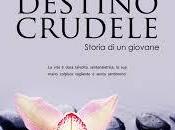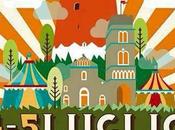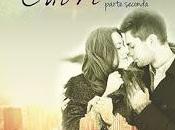 Ringraziamo Nancy Bilyeau per la sua sollecitudine nel rispondere alle nostre domande e per la sua disponibilità a essere ospitata sul nostro blog. Credo che L’Ultimo Velo sia veramente un magnifico thriller di historical fiction
Ringraziamo Nancy Bilyeau per la sua sollecitudine nel rispondere alle nostre domande e per la sua disponibilità a essere ospitata sul nostro blog. Credo che L’Ultimo Velo sia veramente un magnifico thriller di historical fiction
Diario: Domanda banale: perché i Tudor e perché questo diverso punto di vista della storia? Nancy Bilyeau: Sono stata attratta dal XVI secolo fin da quando ero molto giovane. In casa ho una biblioteca piena di libri. Direi che la dinastia Tudor ha tutto: amore, morte, guerra, tradimento, avidità, sacrificio, bellezza. Ho scelto il punto di vista di una giovane aristocratica che diventa una novizia domenicana perché non volevo raccontare la storia di un reale — era stato già fatto. Inoltre, volevo creare un’eroina di fantasia; una persona che vivesse una vita che consideravo affascinante.
D.: Ho letto che i tuoi antenati sono arrivati in America dalla Francia per sfuggire alle persecuzioni religiose. Quanto di ciò ha influito sulla scelta del periodo storico di The Crown (L’Ultimo Velo)? N.B.: Sì, Pierre Billiou e la sua famiglia abbandonarono la Francia a causa delle persecuzioni verso gli ugonotti, che erano in aumento. La moglie di Pierre, Francoise, diede alla luce un figlio durante il viaggio, Isaac. Io discendo da lui. La piccola casa di pietra di Pierre a Staten Island è ancora in piedi: è la terza fra le abitazioni più antiche nello Stato di New York. Mi piace visitarla e farmi ispirare dal passato. Ma non credo di aver scelto di scrivere sul XVI secolo a causa della mia storia di famiglia. Ciononostante, credo di essere interessata al conflitto fra Protestanti e Cattolici, e presumo che questo dipenda dalle mie radici ugonotte. Ai giorni nostri non è la principale controversia religiosa, ma c’è stato un tempo in cui essa ha diviso l’Europa ed è stata una delle principali cause di emigrazione in America. Nella mia famiglia, mia madre proviene da una famiglia irlandese cattolica — gli O’Neills — e ci sono state tensioni fra la famiglia protestante di mio padre e quella cattolica di mia madre.
D.: Parlaci della tua eroina Joanna Stafford e della sua scelta di diventare monaca.
N.B.: Non volevo scegliere la soluzione narrativa che avrebbe visto Joanna costretta a divenire monaca dalla sua famiglia o perché non era stata in grado di trovare marito. Quella è una supposizione più moderna, basata sulla ricerca storica. Molte donne all’epoca sceglievano di entrare in convento per vocazione e perché volevano dedicare la loro vita ad essere spose di Cristo. Questo è il caso di Joanna, che ha sperimentato brevemente la vita di dama alla corte di Enrico VIII, trovandola disgustosa e spaventosa. Nel priorato di Dartfield ha trovato uno scopo che non aveva incontrato altrove.
N.B.: Sì, Pierre Billiou e la sua famiglia abbandonarono la Francia a causa delle persecuzioni verso gli ugonotti, che erano in aumento. La moglie di Pierre, Francoise, diede alla luce un figlio durante il viaggio, Isaac. Io discendo da lui. La piccola casa di pietra di Pierre a Staten Island è ancora in piedi: è la terza fra le abitazioni più antiche nello Stato di New York. Mi piace visitarla e farmi ispirare dal passato. Ma non credo di aver scelto di scrivere sul XVI secolo a causa della mia storia di famiglia. Ciononostante, credo di essere interessata al conflitto fra Protestanti e Cattolici, e presumo che questo dipenda dalle mie radici ugonotte. Ai giorni nostri non è la principale controversia religiosa, ma c’è stato un tempo in cui essa ha diviso l’Europa ed è stata una delle principali cause di emigrazione in America. Nella mia famiglia, mia madre proviene da una famiglia irlandese cattolica — gli O’Neills — e ci sono state tensioni fra la famiglia protestante di mio padre e quella cattolica di mia madre.
D.: Parlaci della tua eroina Joanna Stafford e della sua scelta di diventare monaca.
N.B.: Non volevo scegliere la soluzione narrativa che avrebbe visto Joanna costretta a divenire monaca dalla sua famiglia o perché non era stata in grado di trovare marito. Quella è una supposizione più moderna, basata sulla ricerca storica. Molte donne all’epoca sceglievano di entrare in convento per vocazione e perché volevano dedicare la loro vita ad essere spose di Cristo. Questo è il caso di Joanna, che ha sperimentato brevemente la vita di dama alla corte di Enrico VIII, trovandola disgustosa e spaventosa. Nel priorato di Dartfield ha trovato uno scopo che non aveva incontrato altrove.
 D.: Se Joanna Stafford fosse stata spagnola (lo è per metà, ma intendo: se fosse vissuta in Spagna) o italiana, cosa credi che avrebbe scelto di fare? Sarebbe diventata una monaca? Cosa le sarebbe accaduto?
N.B.: Credo che Joanna avrebbe preso I voti definitivi per diventare monaca dell’Ordine Domenicano, felice della sua vocazione. Sorella Joanna è così intelligente e istruita che, se riuscisse a dominare il suo temperamento e imparasse ad essere più paziente, potrebbe diventare badessa. Ne sono certa!
D.: Ci parli dei cinque anni di ricerche che hanno portato a realizzare L’Ultimo Velo? Che genere di libri e documenti hai consultato?
N.B.: Ho letto tutte le biografie delle principali figure dell’epoca, studi politici, studi religiosi; inoltre ho letto le agende e i documenti di Enrico VIII come sono raccolti oggi. Sono riuscita a trovare libri sulla vita monastica in Inghilterra nel tardo Medioevo — uno era stato scritto nel XIX secolo — e ne ho letta con attenzione ogni parola.
D.: L'Ultimo Velo è un romanzo storico. Parlando di questo genere, quanto e come è difficile immedesimarsi nel periodo storico scelto per scriverne in modo puntuale e dettagliato?
N.B.: Sì, è stato difficile all’inizio entrare nella mentalità dei personaggi, perché è incredibilmente diversa da una prospettiva del XXI secolo. Ma ero determinata a non imporre valori e pregiudizi moderni ai miei personaggi. Infine, sono riuscita a “sentirla” e a capire; e ora sono gelosa del rapporto che c’era nel XVI secolo nei confronti di Dio e del servizio in un priorato.
D.: Secondo te in un romanzo storico deve prevalere la ricostruzione storica o la parte di ‘fiction’, come si può trovare nel caso il giusto equilibrio tra le parti?
N.B.: Si intrecciano in continuazione. È stata la Storia a darmi l’idea per creare i personaggi e la trama, ma poi ho cercato di rendere le azioni e l’ambientazione ben fondate con accurati dettagli storici.
D.: Se Joanna Stafford fosse stata spagnola (lo è per metà, ma intendo: se fosse vissuta in Spagna) o italiana, cosa credi che avrebbe scelto di fare? Sarebbe diventata una monaca? Cosa le sarebbe accaduto?
N.B.: Credo che Joanna avrebbe preso I voti definitivi per diventare monaca dell’Ordine Domenicano, felice della sua vocazione. Sorella Joanna è così intelligente e istruita che, se riuscisse a dominare il suo temperamento e imparasse ad essere più paziente, potrebbe diventare badessa. Ne sono certa!
D.: Ci parli dei cinque anni di ricerche che hanno portato a realizzare L’Ultimo Velo? Che genere di libri e documenti hai consultato?
N.B.: Ho letto tutte le biografie delle principali figure dell’epoca, studi politici, studi religiosi; inoltre ho letto le agende e i documenti di Enrico VIII come sono raccolti oggi. Sono riuscita a trovare libri sulla vita monastica in Inghilterra nel tardo Medioevo — uno era stato scritto nel XIX secolo — e ne ho letta con attenzione ogni parola.
D.: L'Ultimo Velo è un romanzo storico. Parlando di questo genere, quanto e come è difficile immedesimarsi nel periodo storico scelto per scriverne in modo puntuale e dettagliato?
N.B.: Sì, è stato difficile all’inizio entrare nella mentalità dei personaggi, perché è incredibilmente diversa da una prospettiva del XXI secolo. Ma ero determinata a non imporre valori e pregiudizi moderni ai miei personaggi. Infine, sono riuscita a “sentirla” e a capire; e ora sono gelosa del rapporto che c’era nel XVI secolo nei confronti di Dio e del servizio in un priorato.
D.: Secondo te in un romanzo storico deve prevalere la ricostruzione storica o la parte di ‘fiction’, come si può trovare nel caso il giusto equilibrio tra le parti?
N.B.: Si intrecciano in continuazione. È stata la Storia a darmi l’idea per creare i personaggi e la trama, ma poi ho cercato di rendere le azioni e l’ambientazione ben fondate con accurati dettagli storici.

L'edizione Inglese
D.: Come hai vissuto la nomination all’Ellis Peters Historical Dagger Award del 25 maggio? (Noi tifiamo per te!) N.B.: La candidatura è arrivata dal mio editore inglese, Orion. Non sapevo neanche che lo avessero fatto. Me ne sono resa conto quando ho ricevuto una e-mail dalla mia editor inglese, Genevieve Pegg, che diceva che ero nella rosa dei candidati per il premio. Sono stata enormemente sorpresa di essere in lizza per un premio così importante, al mio romanzo d’esordio. È un grande onore. D.: Ho letto sul tuo blog i molti significati del titolo inglese del tuo libro, The Crown. Li puoi spiegare anche a noi italiani? Che ne pensi del fatto che in Italia il libro abbia tutt’altro titolo: L’ultimo velo (The Last Veil)? Lo trovi appropriato? N.B.: Mi piace L’Ultimo Velo. Il titolo che avevo scelto per il romanzo era The Last Nun (L’Ultima Monaca). Il mio editore lo ha cambiato. The Crown (La Corona), si riferisce a un oggetto di importanza mistica, che è il principale obiettivo nell’intreccio del romanzo; esso si riferisce anche al potere del trono inglese. Uno dei personaggi — Geoffrey Scovill — dice a sorella Joanna mentre viaggiano verso la Torre di Londra: “O la corona o la croce”. D.: Sei stata paragonata a un mix fra Dan Brown e Philippa Gregory. A quale dei due scrittori ti senti più vicina? N.B.: Li ammiro enormemente entrambi! Sono paragonata a Philippa Gregory perché ha scritto romanzi di successo ambientati nello stesso periodo storico e a Dan Brown perché naturalmente è il maestro del Thriller religioso. Ma se dovessi scegliere uno scrittore a cui mi sento più vicina, credo che sarebbe Daphne du Maurier, l’autrice di Rebecca. La Du Maurier era padrona dell’arte della suspense e del thriller psicologico, raccontato in prima persona. Ha la mia più grande ammirazione.
Daphne Du Maurier
D.: Hai già scritto il seguito di The Crown, The Chalice, che verrà pubblicato nel 2013. La protagonista sarà ancora Joanna Stafford. Ci parli di questo libro? Quali personaggi di The Crown incontreremo ancora? N.B.: I personaggi principali proseguiranno: Joanna, Geoffrey Scovill, Edmund Sommerville e Arthur Bulmer. Il Vescovo Stephen Gardiner apparirà nuovamente — non riesce a lasciare in pace Joanna! Ma ci saranno nuovi avversari da fronteggiare. E anche personaggi storici, comprese due donne che diverranno mogli di Enrico VIII. The Chalice si tuffa in una cospirazione internazionale, e nella storia Joanna lascia l’Inghilterra per un po’.D.: Quali sono i tuoi progetti per il futuro? Continueremo a leggere ancora di Joanna Stafford, o ci aspetta qualcosa di totalmente diverso in futuro? N.B.: Ho progetti per un terzo romanzo su Joanna Stafford, su cui sto lavorando, ma sto anche prendendo in considerazione un historical thriller ambientato in America. Ancora grazie mille, Nancy. Non vediamo l’ora di leggere The Chalice! E naturalmente ti facciamo un enorme in bocca al lupo per l’Ellis Peters Historical Daggard Award. You can read here the English version of the interview: We do thank Nancy Bilyeau very much for her readiness in answering our questions and her willingness to be hosted in our blog. I think that The Crown (L’ultimo velo), is a really wonderful historical/thriller fiction. Diario: In the first place I would like to ask you a basic question: why the Tudors and why such an uncommon point of view? Nancy Bilyeau: I’ve been drawn to the 16th century since I was very young. I have a home library filled with books. I would say the Tudor dynasty has everything: love, death, war, betrayal, greed, sacrifice, beauty. I picked the point of view of a young aristocratic woman who becomes a Dominican novice because I did not want to tell the story of a royal, it has been done, and done well, so often by other authors. I wanted to try something different, and I wanted to create a fictional heroine, one living a life I find fascinating. D.: I’ve read your French ancestors emigrated to America to escape religious persecution. To what extent has this affected your choice for the historical period of The Crown (L’ultimo velo)? N.B.: Yes, Pierre Billiou and his family left France in the 1660s because of increasing persecution of the Huguenots. Pierre’s wife, Francoise, gave birth to a son on the voyage: Isaac. I am descended from him. Pierre’s small stone house on Staten Island still stands, it is the third oldest house in New York State. I like to go there and feel inspired by the past. But I don’t think I chose to write about the 16th century because of my personal family history. Yet I believe I’m particularly interested in the conflict of Protestant versus Catholic and perhaps that is because of my Huguenot roots. It is not the driving religious controversy in our modern age but it once tore Europe apart and was the cause of much of the emigration to America. In my family, my mother is from an Irish Catholic family, the O’Neills, so there were some tensions between my Protestant father side and my Catholic mother side.
D.: Can you tell us about your heroine, Joanna Stafford, and her choice to become a nun? N.B.: I did not want to take the narrative position that Joanna was forced into becoming a nun by her family or because she had not been able to find a husband. That is more modern assumptions than based on historical research. Many women of that time chose to be nuns because they had a spiritual calling and they wanted to submit their lives to being a bride of Christ. In Joanna’s case, she had briefly experienced the life of a female courtier serving Henry VIII and found it disgusting and frightening. She felt a purpose for her life in Dartford Priory that she’d not experienced elsewhere. D.: If Joanna Stafford were Spanish (she is in fact half-Spanish, but I mean, if she lived in Spain) or if she were Italian, what do you think she would choose? Being a nun living in seclusion anyway? What would happen to her? N.B.: I think she would have taken final vows to become a full nun of the Dominican Order and been happy with her spiritual calling. Sister Joanna is so intelligent and accomplished that, if she could master her temper and learn more patience, I think she would become prioress. I’m sure of it!
D.: Please, tell us about your five years of research to complete the writing of The Crown. What kind of books and documents did you consult? N.B.: I read all the biographies of major figures of the time, political studies, religious studies, and I read the Calendars and Papers of Henry VIII as gathered today. I managed to find books about monastic life in late medieval England, one of them written in the 19th century, and I pored over every word. D.: The Crown is a historical fiction. About this literary genre: in which way and how difficult was for you to empathize with the historical period you took into consideration, to write about it fully and unfailingly? N.B.: Yes, it was difficult at first to enter into the religious mindset of the characters, because it is vastly different than a 21st century perspective. But I was determined to not impose modern values and prejudices onto my characters. I finally began to “feel” it and understand, and now I am protective of the 16th century relationship toward God and service in a priory.
D.: According to you, in a historical novel should the historical reconstruction or the fiction side be dominant? How can these two aspects be perfectly balanced? N.B.: They are intertwined always. It was the real history that gave me the idea for the characters and the plot, but then I tried to make her actions and surroundings grounded in accurate historical detail. D.: How did you go through the nomination for the Ellis Peters Historical Dagger Award on May 25th? (We root for you, of course!) N.B.: My book was nominated by my British publisher, Orion. I did not even know they had done so. I woke up to an email from my British editor, Genevieve Pegg, saying I was on the short list for the Historical Dagger. I was incredibly surprised to be nominated for such an award on my first novel. It’s a great honor. D.: On your blog I’ve read about the several meanings which the title of your novel conveys, The Crown. Would you please explain them to Italian readers? What do you think about the Italian title, which is so different from the English one: L’ultimo Velo (The Last Veil)? Do you think it is suitable for your novel? N.B.: I do like The Last Veil. My own title for the book was The Last Nun. My publisher changed it. As for The Crown, it refers to the object of mystical importance that is the central goal of the plot of the book but it also refers to the power of the English throne. One of the characters, Geoffrey Scovill, says to Sister Joanna when they are on their way to the Tower of London, “It’s the crown or the cross.”
D.: Your style has been compared to a mixture between Philippa Gregory and Dan Brown. Whom do you feel closer to? N.B.: I admire both of them so much! I’m compared to Philippa Gregory because she has written successful novels set in the same time period and Dan Brown because of course he is the master of the religious thriller. But if I had to pick an author I feel closest to I think it would be Daphne du Maurier, author of Rebecca. She mastered the art of the suspenseful psychological story, told in the first person. I’m in awe of her.
D.: You’ve already written the sequel to The Crown, The Chalice, that will be released in 2013. The heroine is still Joanna Stafford. Can you tell us more about this book? Which characters from The Crown are we going to meet again? N.B.: The main characters will go forward: Joanna, Geoffrey Scovill, Edmund Sommerville, and Arthur Bulmer. Bishop Stephen Gardiner reappears—he can’t leave Joanna alone! But there are new antagonists to be dealt with. And people from history as well, including two women who become wives of Henry VIII. The Chalice plunges into an international conspiracy, and in the story Joanna leaves England for a time. D.: What about your future plans? Will we meet Joanna Stafford once again, or should we expect something totally different? N.B.: I have a plot for a third Joanna Stafford book that I’m working out, and also I’m contemplating a historical thriller set in America. Thank you very much again, Nancy, We’re looking forward to reading The Chalice! And of course, our best wishes for the Ellis Peters Historical Daggar Award.






